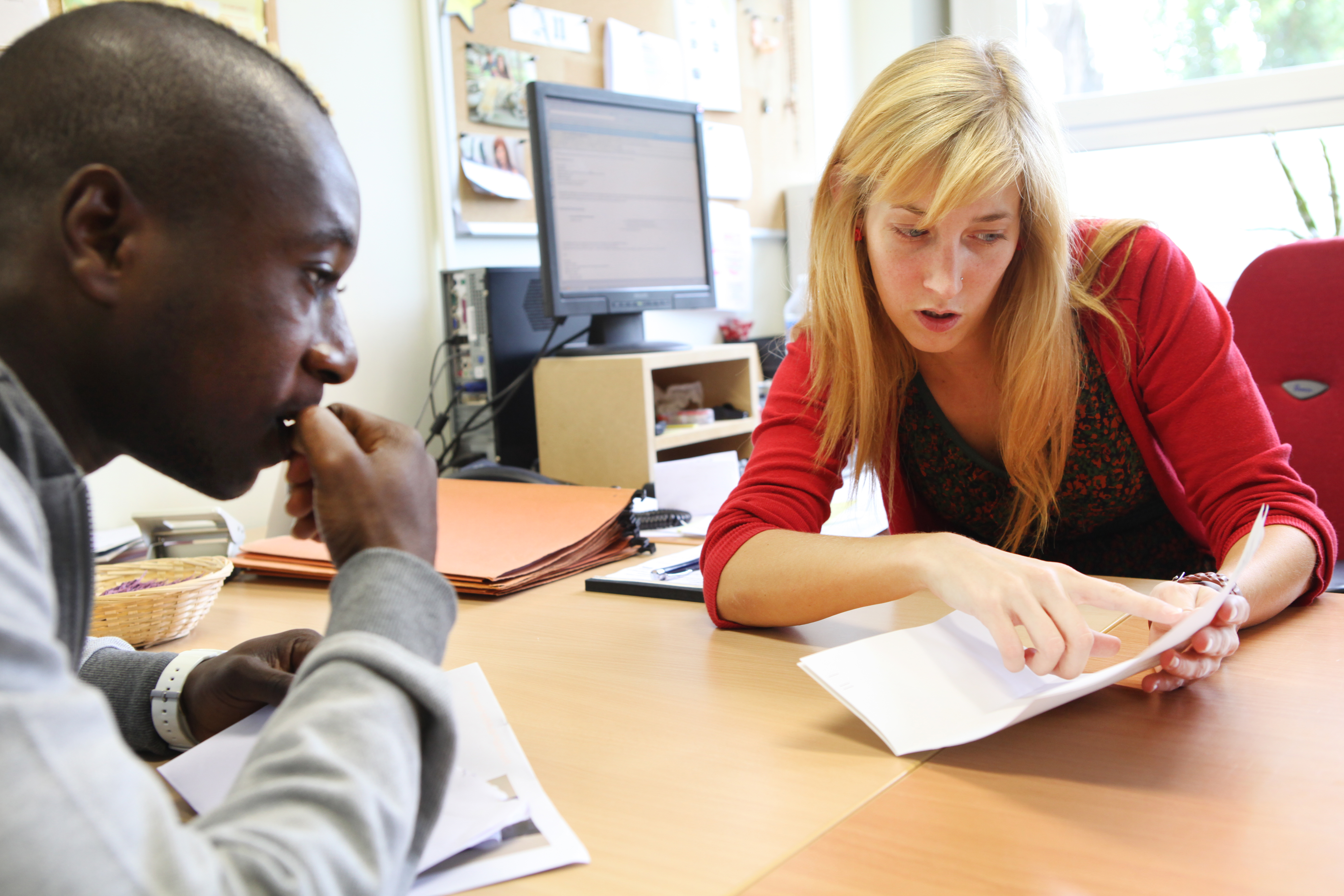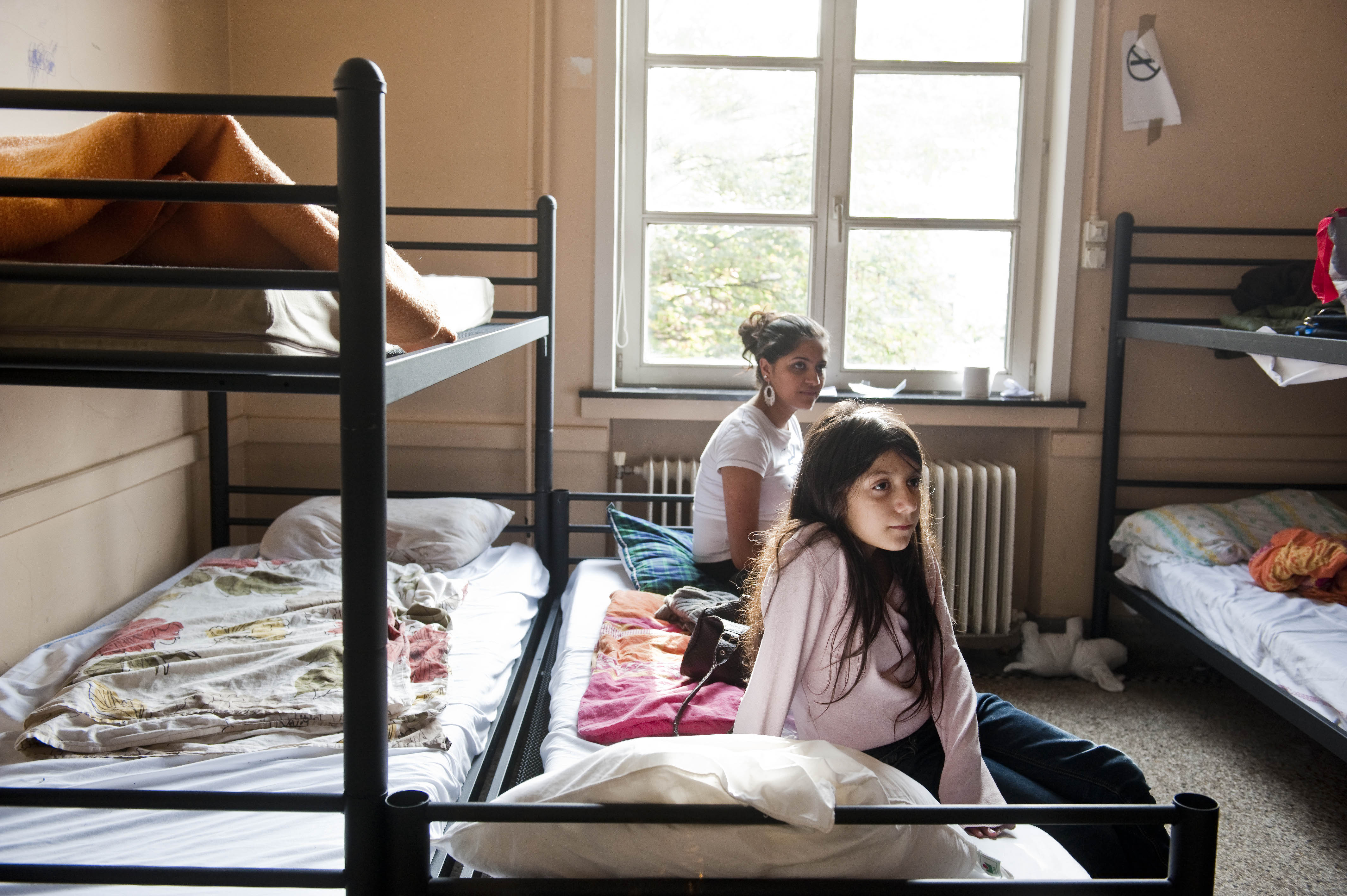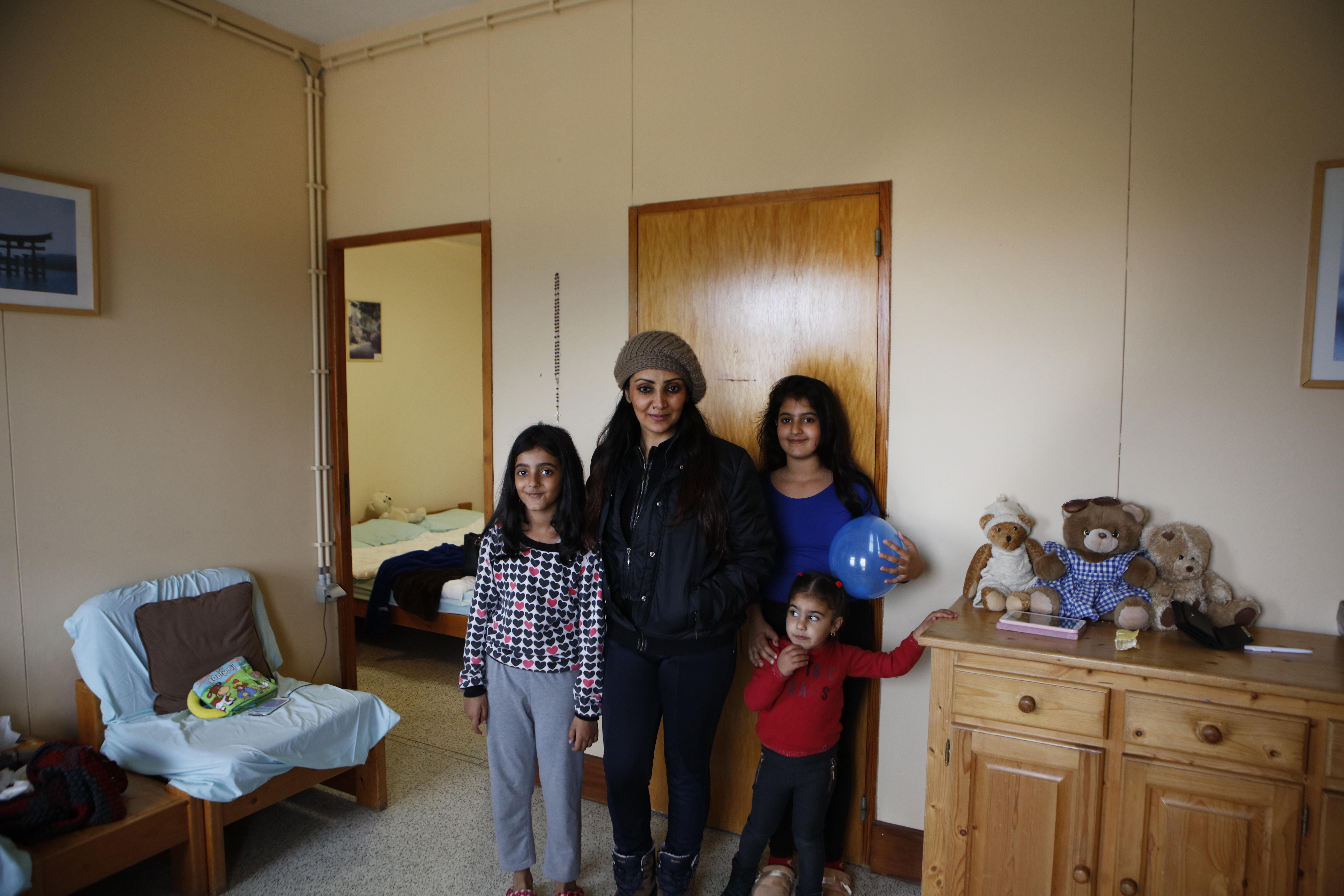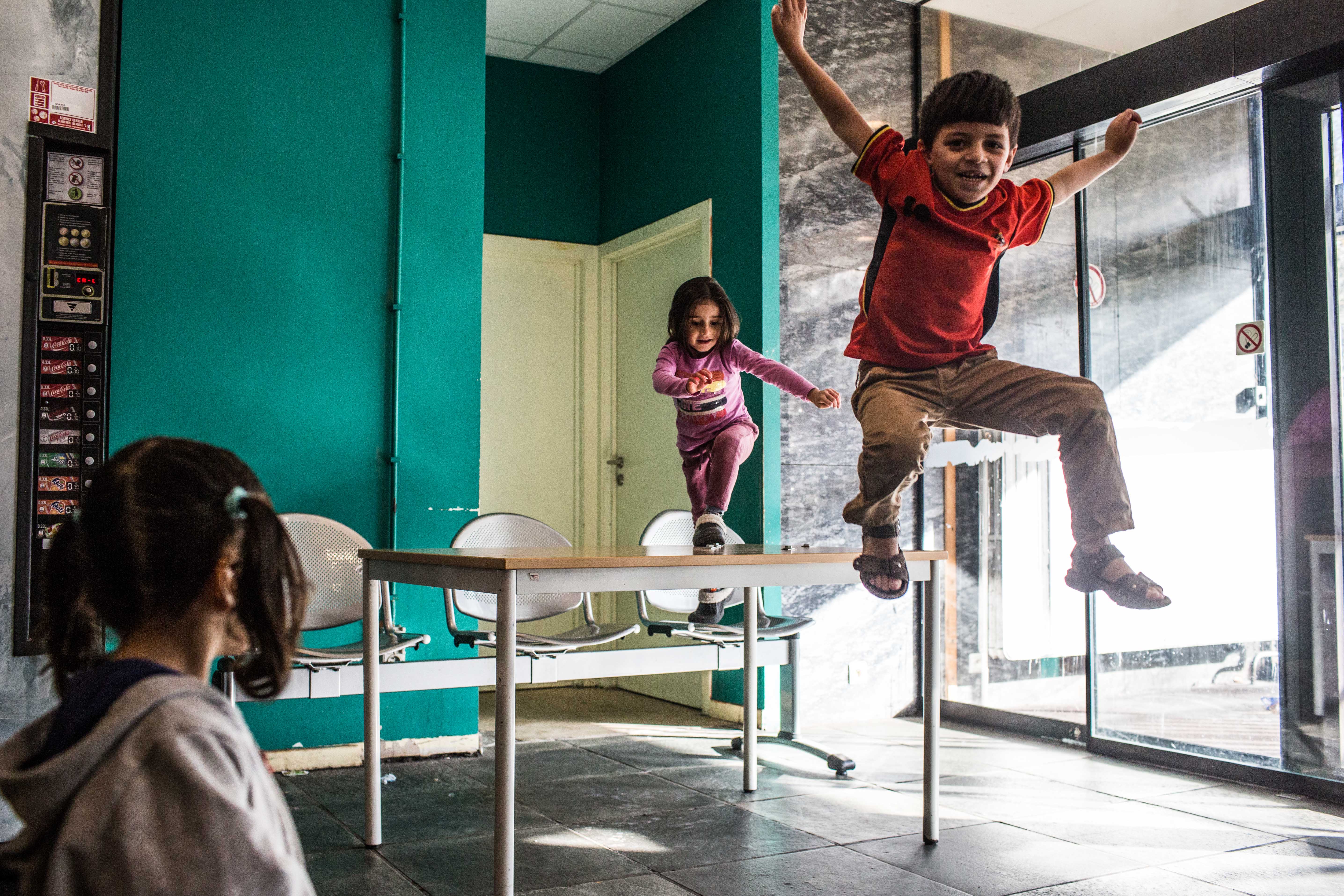Stages
The refugees selected for resettlement in Belgium follow a procedure that includes different stages and that involves international and national actors.
Selection by the UNHCR

The United Nations High Commissioner for Refugees(UNHCR)identifies the refugees who fulfil the criteria for resettlement. On the basis of their vulnerability, UNHCR selects refugees and submits their files to Belgium.
Selection by Belgium

The Commissioner General for Refugees and Stateless Persons (CGRS) organizes a selection mission in the first country of asylum and conducts interviews with refugees. On the basis of the interview and other elements of the case, the CGRS issues a notice to the political authority in charge of asylum and migration. The political authority takes a final decision and gives instructions for the issuance of the necessary travel documents to selected refugees.
Medical screening
Fedasil carries out a medical screening in order to identify the medical needs at an early stage so that the necessary preparations to organise the transfer and the reception in Belgium can be made. The medical screening often takes place during the selection mission.
Social screening
Fedasil organises social screenings, usually in the framework of the selection mission, during which information is given in order to, on the one hand, adjust the expectations regarding Belgium and on the other hand, to collect relevant information in order to prepare a social file. This information can relate to the personal family situation, certain accommodation needs, possible family links in Belgium, knowledge of languages, schooling, professional experience, etc.
BELCO
Fedasil, with the logistical support of the International Organization for Migration (IOM),is in charge of the organisation of BELCO, the Belgian cultural orientation. The purpose of BELCO is to inform the refugees before their departure and to help them better manage their expectations. For several days, Fedasil addresses a range of topics (school, work, norms and values, travel...) and conducts individual interviews with refugees to prepare their reception in Belgium.
More info: here
Travel
After obtaining the necessary documents via the Immigration Office (IO), the Foreign Affairs and the local embassies, refugees leave the country they are living. The IOM takes cares of the flights, the last medical examinations and supports refugees from their departure to their arrival in Belgium, which includes the formalities in terms of immigration and customs.
Reception in Belgium

There are different reception models for the resettled refugees in Belgium. The standard model consists in a reception phase in a collective centre specialised in the reception of resettled refugees (Kapellen, Florennes, Morlanwelz, Pondrôme and Saint-Trond), followed by a stay in a LRI or a TVU (a facility for vulnerable profiles, managed by Caritas International). In some cases, the resettled persons are accommodated in a LRI or a TVU right after their arrival. In addition, the PCSW (public social welfare centres) have the possibility to offer refugees accommodation in their commune and thus become a partner of the programme, either right after the arrival of the refugees or after a stay in a collective reception centre or in a LRI.
Besides the reception models proposed by the government actors (Fedasil or the PCSW), there is a model where the reception is ensured by the community itself: the Community Sponsorsip project. A group of volunteers can be candidate to receive a person or a family resettled in Belgium and to guide them for some time. The group thus joins one the intermediary organisations that provide the necessary support in the field.
Here is an overview of the different models: here
Asylum procedure

It is only after the arrival in Belgium that the refugees officially apply for international protection at the Immigration Office. This appointment at the IO takes place a few days after their arrival. Since the CGRAS has already given a positive advice regarding their application, they are quickly granted a refugee status.
Adaptation and integration

At different stages of the resettlement process, trainings are proposed to inform the resettled persons about life in Belgium and to focus on the development of competences and attitudes that will help them with the adaptation and integration process in Belgium. Besides the conventional integration services in Belgium to which the resettled persons have access after their arrival in Belgium, the following initiatives aim at preparing them as early as possible.
All missions abroad are organised with the support of the International Organization for Migration (IOM) or the European Union Agency for Asylum (EUAA).
BELCO & BELCO+
First, there is the BELCO training before the arrival in Belgium, followed by a BELCO+ training after the arrival, both given by Fedasil staff members. The pre-departure BELCO training is a four-day training that takes place in group. A trainer guides a group through a variety of interactive methods in order to address different themes (Belgian culture and society, education, work, health care, family, etc.). The BELCO+ programme builds on these elements after the arrival and is composed of different modules organised during the six weeks following the arrival. These are also attended in group and they focus on interactive and participatory methodologies.
Download the BELCO flyer: here
Caritas International
The NGO Caritas developed a project for Syrian and Congolese refugees who recently arrived in Belgium through resettlement. In this context, Caritas manages, under the guidance of Fedasil:
- The organisation of workshops in the form of collective and interactive sessions on specific psychosocial and citizenship topics;
- The management of an online platform where refugees can exchange and receive reliable information in their own language;
- The development of a network of ambassadors composed of former resettled refugees.
Partnership with the PCSW
Any PCSW can become a partner in the resettlement programme by offering these refugees accommodation in the commune, but outside the Fedasil reception network. In this event, the PCSW undertakes to offer intensive tailor-made support for a minimum of 12 months in order to promote integration (orientation towards language courses, integration programmes, professional integration services, etc.).
The PCSW then becomes a resettlement operator in its own right, providing support for the sustainable integration of refugees resettled in a Belgian commune. This approach is part of the local anchoring vision advocated by Fedasil.
Do you have any questions regarding the selection of resettled refugees and the international protection, or questions regarding specific applications? Contact the CGRS via resettlement@ibz.fgov.be.
Do you have questions regarding the transfer to Belgium and the reception of resettled refugees? Contact us via resettlement@fedasil.be.
You are a refugee, you are living outside Belgium and you have questions about resettlement in this country? Contact UNHCR in the country you are living in. Fedasil in not responsible for identifying the people for resettlement.
